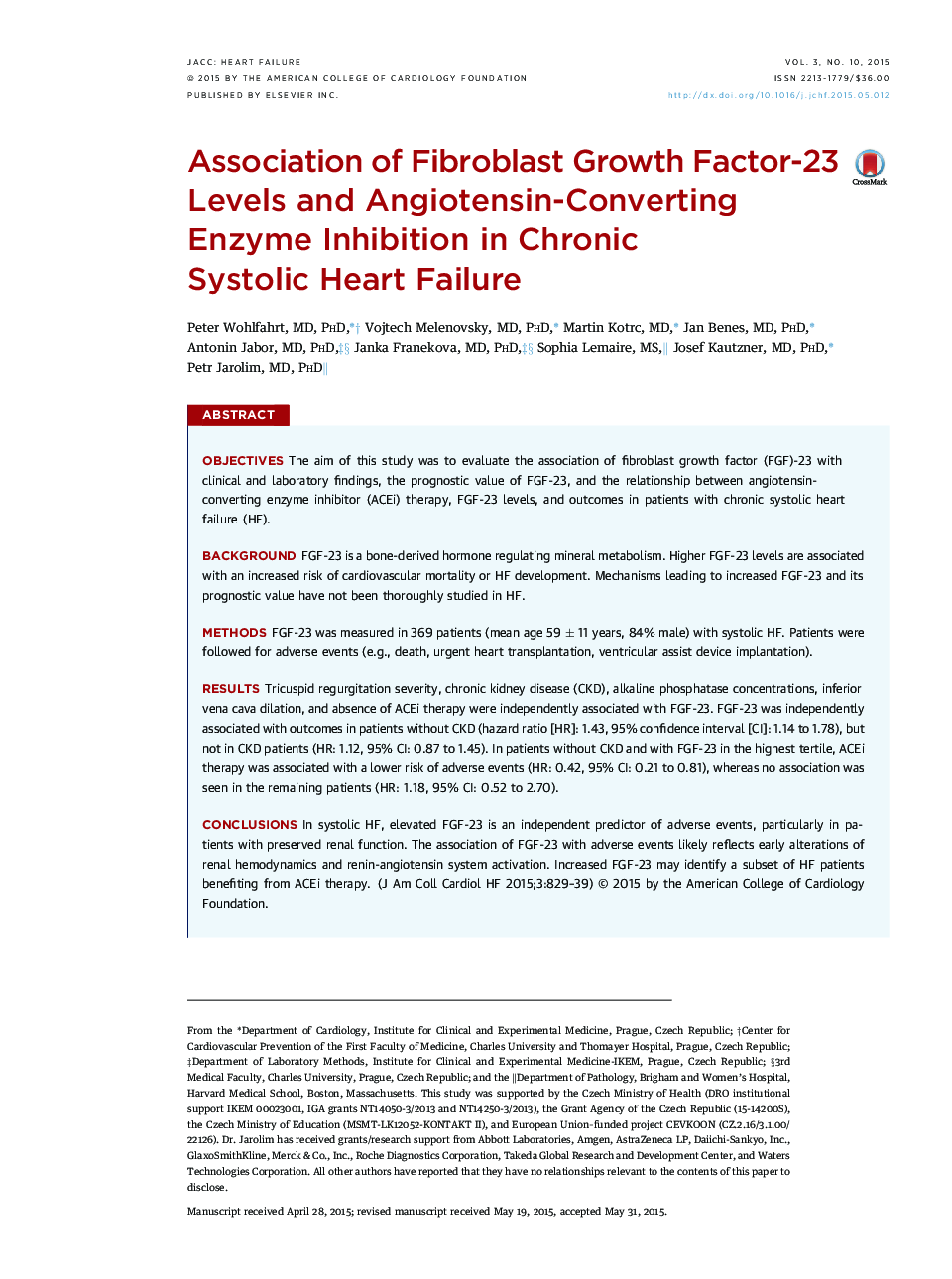| کد مقاله | کد نشریه | سال انتشار | مقاله انگلیسی | نسخه تمام متن |
|---|---|---|---|---|
| 2942376 | 1177119 | 2015 | 11 صفحه PDF | دانلود رایگان |
ObjectivesThe aim of this study was to evaluate the association of fibroblast growth factor (FGF)-23 with clinical and laboratory findings, the prognostic value of FGF-23, and the relationship between angiotensin-converting enzyme inhibitor (ACEi) therapy, FGF-23 levels, and outcomes in patients with chronic systolic heart failure (HF).BackgroundFGF-23 is a bone-derived hormone regulating mineral metabolism. Higher FGF-23 levels are associated with an increased risk of cardiovascular mortality or HF development. Mechanisms leading to increased FGF-23 and its prognostic value have not been thoroughly studied in HF.MethodsFGF-23 was measured in 369 patients (mean age 59 ± 11 years, 84% male) with systolic HF. Patients were followed for adverse events (e.g., death, urgent heart transplantation, ventricular assist device implantation).ResultsTricuspid regurgitation severity, chronic kidney disease (CKD), alkaline phosphatase concentrations, inferior vena cava dilation, and absence of ACEi therapy were independently associated with FGF-23. FGF-23 was independently associated with outcomes in patients without CKD (hazard ratio [HR]: 1.43, 95% confidence interval [CI]: 1.14 to 1.78), but not in CKD patients (HR: 1.12, 95% CI: 0.87 to 1.45). In patients without CKD and with FGF-23 in the highest tertile, ACEi therapy was associated with a lower risk of adverse events (HR: 0.42, 95% CI: 0.21 to 0.81), whereas no association was seen in the remaining patients (HR: 1.18, 95% CI: 0.52 to 2.70).ConclusionsIn systolic HF, elevated FGF-23 is an independent predictor of adverse events, particularly in patients with preserved renal function. The association of FGF-23 with adverse events likely reflects early alterations of renal hemodynamics and renin-angiotensin system activation. Increased FGF-23 may identify a subset of HF patients benefiting from ACEi therapy.
Journal: JACC: Heart Failure - Volume 3, Issue 10, October 2015, Pages 829–839
